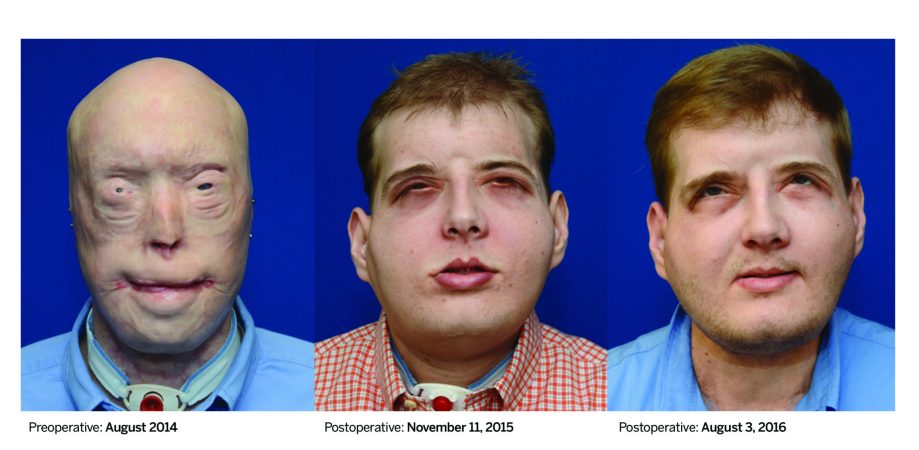


Nearly one in 20 Americans will get appendicitis at some point in their lives, leading to 300,000 appendectomies performed every year. The vast majority of those one in 20 go under the knife, have their appendix removed, leave the hospital after a day or two or recovery, and go on with their lives. But what if you could fix your appendix woes without all the slicing? A study published Tuesday in JAMA suggests antibiotics could be a viable, effective alternative to most appendectomies, raising hopes for those who would prefer a non-operative treatment for the extremely common ailment.
The majority of acute appendicitis cases are not complicated by larger issues, like an organ rupture or signs of a tumor. “These patients can be evaluated by antibiotic therapy,” says Paulina Salminen, a surgeon based at the University of Turku in Finland and the lead author of the new study. “It takes some time to create a big change in the mindset of patients, doctors, and surgeons, but this has already started with the promising results. This could have a major impact on current surgical practices.”
There’s a good reason why the appendectomy has been the treatment of choice for acute appendicitis for over a century: “You don’t need it,” Janice Taylor, a pediatric surgeon based at the University of Florida Health, says of the offending organ. “If it’s out, it can’t hurt you. It’s a low-risk, pretty routine operation. There are millions of people walking around without appendixes, and they do just fine.”
But any invasive surgery, even one as seemingly routine as an appendectomy, bears risks, especially for patients who are in poor health or at risk for developing complications. Anesthesia sometimes creates unforeseen problems. There are also the practical hassles of surgery, like financial impacts and taking time off from work.
In addition, says Taylor, we’re starting to err more on the side of caution. Although we don’t really know the purpose of the appendix—and living without one doesn’t cause any obvious ill effects—it’s possible the organ plays some sort of immunological or physiological function. If our research into the gut microbiome has taught us anything, minor changes to our health could have larger ramifications we’ve yet to unravel.
“We’re surgeons, we love to operate, but we don’t suggest surgery unless we really need to,” says Taylor. And when it comes to the appendix, apparently, that’s not always the case.
According to F. Thurston Drake, a surgeon based at Boston Medical Center, antibiotic therapy for the ailment “arose from our knowledge that submariners successfully treated appendicitis with antibiotics, because they could not surface the subs during the Cold War,” he says. “Knowledge that this was successful sort of ‘re-surfaced’ in the last 15-20 years, prompting researchers to study whether antibiotics was a viable treatment rather than just a delaying tactic until appendectomy could be performed.”
The JAMA study involved the five-year observation of 530 men and women aged 18 to 60, randomized for undergoing appendectomy or antibiotic therapy in response to a diagnosis of uncomplicated acute appendicitis after a CT scan. Antibiotic therapy consisted of an intravenous dose of ertapenem (commonly used for severe bacterial infections) for three days, followed by seven days of oral antibiotics. All appendectomies were conventional, open surgeries.
Nearly 61 percent of patients treated with antibiotics didn’t need surgery within those five years of observation. And although about 39 percent suffered a recurrence and needed surgery later on, this delay did not result in any increased or severe complications.
Let’s be clear: those numbers are good, but not great. And the sample size of the study could certainly be larger. If you assume the real world results will follow those numbers, then four out of every 10 people treated with antibiotics will have to come back in for surgery within five years—and 27.3 percent of those patients will be back within a year.
On the other hand, one in four patients who had surgery experienced postoperative complications, like abdominal pain or infections around the cut tissue. And treatment costs for surgery patients were about 60 percent higher compared to antibiotic patients.
If you’re elderly, severely ill, or have other concerns, maybe those numbers are convincing enough for you to go with antibiotics. For others, surgery might still the answer. Things really depend on what sort of risk someone is willing to accept, whether it’s the risk of getting appendicitis all over again a few months or years later or the risk of complications from an immediate surgery.
Taylor also points out that the study’s treatment of patients with three days of intravenous antibiotics followed by seven days of oral antibiotics seems relatively arbitrary. “It’s one of those, ‘sure, that sounds reasonable!’ choices,” she says. So results may very well vary in either direction, should doctors tweak the regimen.
As long as the appendix remains in the body, the risk for appendicitis coming back remains as well. Taylor imagines some might elect to toss the organ out entirely rather than deal with the perpetual concern there’s something wrong again. “Every time you get right lower quadrant pain,” she says, “you’re going ask, ‘Is that my appendix? Is it just a pulled muscle? Did I just have bad Mexican for lunch? Where is this from?’ And then that person will probably need to go to the emergency room or urgent care every time for imaging and blood work they might not need.”
Another worry raised by Drake is that providers might treat patients with antibiotics in situations where the diagnosis of appendicitis is less clear, exacerbating the problems associated with inappropriate use of antibiotics, like superbug emergence.
But none of those problems should detract from how encouraging it is to see antibiotic therapy emerge as an alternative for those who aren’t keen on literally losing a body part, and for those who want more agency over their healthcare decisions. “The bottom line is, in my view, both treatments are efficacious,” says Drake. “But we haven’t yet identified for whom each treatment is optimal. As surgeons, we are moving more toward patient-centered decision-making, especially when we have two or more good options. Ultimately, we will deliver the best care when we can outline pros and cons of each treatment, tailored to the individual patient, and then make a joint decision about which treatment modality is best for him or her.”
Salminen and her team, already in the midst of two related studies, hope to dig further into how this treatment method can be optimized for patients and their preferences.
“It basically boils down to patient expectations, and knowing what you’re getting yourself into,” says Taylor. “Antibiotics are a completely viable and appropriate option for the right patient.”















